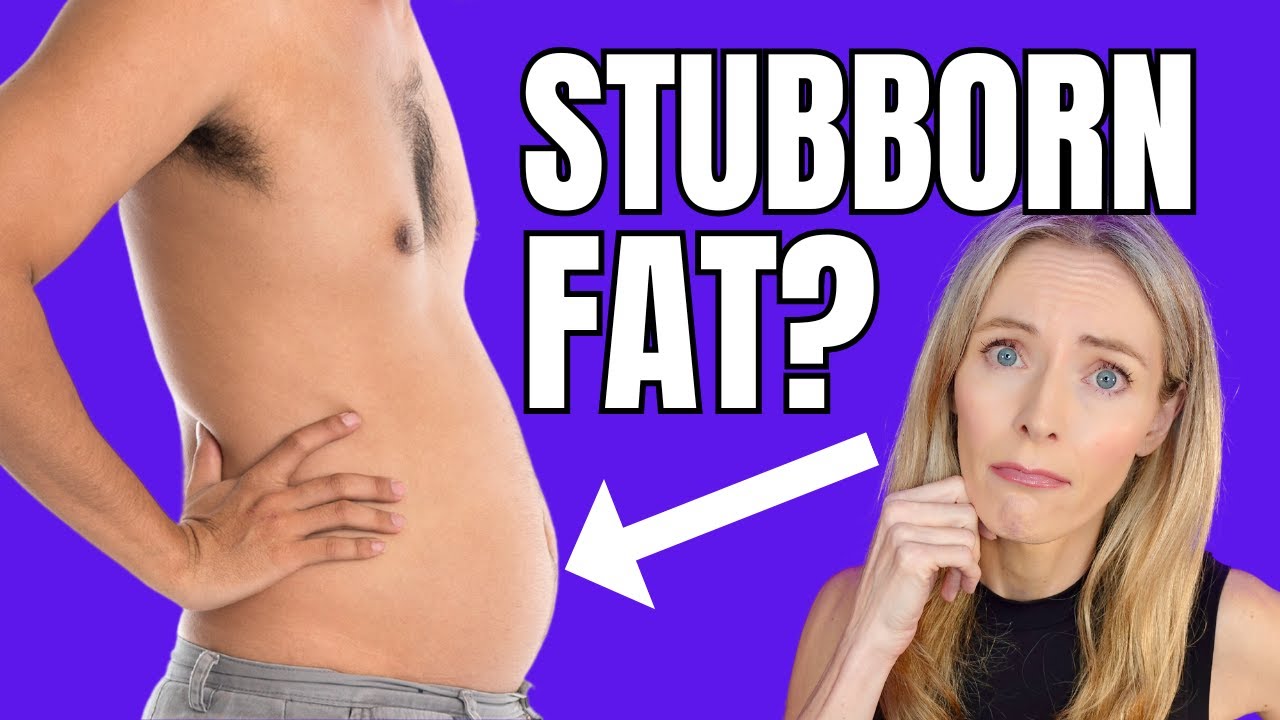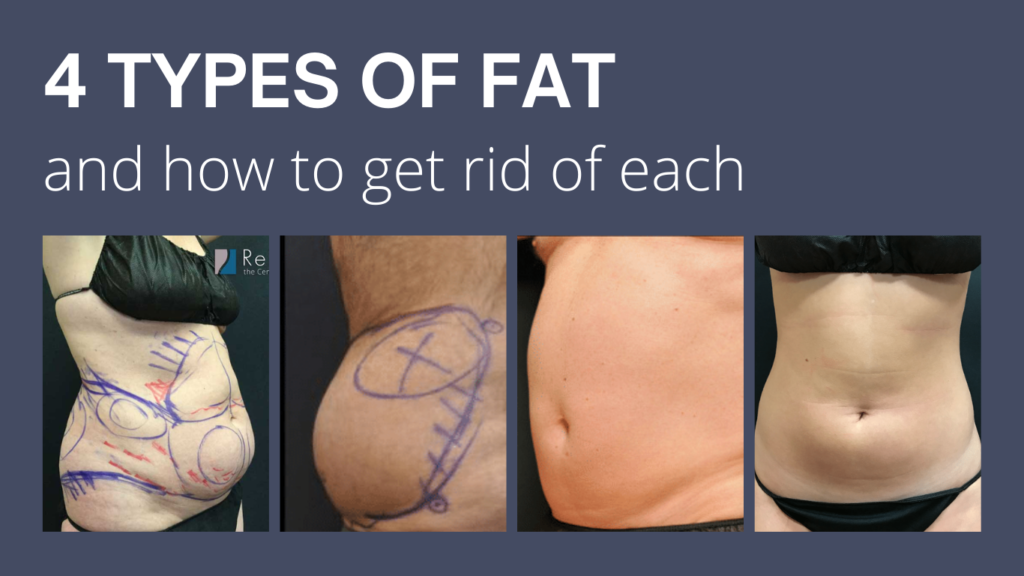Why My Stomach Fat Is Not Going Away: Causes and Effective Solutions

Understanding Why My Stomach Fat Is Not Going Away
Stubborn stomach fat can be frustrating, especially when you feel like you're doing everything right. To understand why your belly fat isn't budging, it’s essential to consider several factors that may be at play. These factors can range from hormonal imbalances to lifestyle choices and underlying health conditions.
Hormonal Influences
Hormones play a significant role in fat distribution in the body. For instance, cortisol, the stress hormone, can lead to increased fat storage in the abdominal area. When you're under chronic stress, your body produces more cortisol, which may result in cravings for unhealthy foods and a tendency to store fat in the belly. Additionally, hormonal changes during menopause can lead to a redistribution of fat, making it harder for women to lose stomach fat.
Lifestyle Choices
Your daily habits can significantly impact your ability to lose stomach fat. Factors such as poor diet, lack of physical activity, and inadequate sleep can contribute to weight retention. Here are some lifestyle choices to consider:
- Poor Diet: Consuming high amounts of processed foods, sugars, and unhealthy fats can hinder your weight loss efforts.
- Physical Inactivity: A sedentary lifestyle can slow down your metabolism, making it harder to burn fat.
- Sleep Deprivation: Not getting enough sleep can disrupt hormonal balance, leading to weight gain and difficulty losing fat.
Underlying Health Conditions
In some cases, underlying health issues can make it challenging to lose stomach fat. Conditions such as hypothyroidism, polycystic ovary syndrome (PCOS), and insulin resistance can lead to weight gain or make it difficult to lose weight. If you suspect that a medical condition may be affecting your weight loss efforts, it’s important to consult with a healthcare professional for proper diagnosis and treatment options.
Age and Genetics
Age and genetics also play a crucial role in fat distribution and weight loss. As you age, your metabolism tends to slow down, and hormonal changes can affect how your body stores fat. Moreover, genetic predisposition can determine where your body tends to store fat, making some individuals more prone to abdominal fat than others. Understanding these factors can help you create a more tailored approach to your weight loss journey.
Common Causes of Stubborn Stomach Fat
Stubborn stomach fat can be a frustrating issue for many individuals, often persisting despite efforts to lose weight through diet and exercise. Understanding the common causes behind this phenomenon can help you develop a more effective strategy for managing your body composition.
1. Hormonal Imbalances
Hormones play a crucial role in regulating body fat distribution. For example, elevated levels of cortisol, often referred to as the "stress hormone," can lead to increased fat accumulation around the abdomen. Additionally, imbalances in sex hormones such as estrogen and testosterone can contribute to stubborn belly fat, particularly in women during menopause.
2. Poor Diet Choices
The types of food you consume can significantly impact stomach fat. Diets high in refined carbohydrates, added sugars, and unhealthy fats can promote fat storage, particularly in the abdominal area. Foods that are highly processed can lead to inflammation, which is linked to fat retention. A diet rich in whole foods, including fruits, vegetables, lean proteins, and healthy fats, is essential for reducing stubborn fat.
3. Sedentary Lifestyle
A lack of physical activity is another major contributor to stubborn stomach fat. When you lead a sedentary lifestyle, your body burns fewer calories, making it easier to gain weight. Regular exercise not only helps burn calories but also boosts metabolism and improves muscle tone, which can aid in reducing belly fat. Incorporating both aerobic exercises and strength training into your routine can be particularly effective.
4. Lack of Sleep and Stress
Sleep deprivation and high-stress levels are interconnected factors that can lead to weight gain, particularly around the stomach. When you don't get enough sleep, your body produces more ghrelin, the hunger hormone, and less leptin, the hormone that signals fullness. This imbalance can result in increased appetite and cravings for unhealthy foods. Moreover, chronic stress can lead to emotional eating and further exacerbate the accumulation of belly fat.
5. Age and Genetics
As you age, your metabolism tends to slow down, making it easier to gain weight and harder to lose it, especially in the abdominal area. Genetics also play a significant role in where your body stores fat. Some individuals may be genetically predisposed to accumulate fat in their stomachs, making it more challenging to achieve a flat belly. Understanding these factors can help tailor your approach to weight management.
Effective Strategies to Reduce Stomach Fat
Reducing stomach fat can be a challenging endeavor, but with the right strategies, you can achieve your goals effectively. Incorporating a combination of healthy eating habits, regular exercise, and lifestyle changes is crucial for targeting abdominal fat specifically. Here are some effective strategies to help you on your journey to a flatter stomach.
1. Adopt a Balanced Diet
To reduce stomach fat, it’s essential to focus on a balanced diet that emphasizes whole, nutrient-dense foods. Incorporate a variety of the following:
- Fruits and Vegetables: These are high in fiber and low in calories, making them excellent choices for weight management.
- Lean Proteins: Foods such as chicken, fish, legumes, and tofu can help build muscle and keep you feeling full longer.
- Whole Grains: Opt for brown rice, quinoa, and whole wheat bread instead of refined grains to improve digestion and maintain energy levels.
In addition to choosing the right foods, pay attention to portion sizes and avoid excessive consumption of sugary and processed foods, which can contribute to fat accumulation around the abdomen.
2. Engage in Regular Physical Activity
Exercise plays a pivotal role in reducing stomach fat. Aim for a mix of cardiovascular and strength-training exercises. Cardio workouts such as running, cycling, or swimming can help burn calories and improve overall fitness. Strength training, on the other hand, helps build muscle mass, which can increase your metabolism and promote fat loss.
Consider incorporating the following into your routine:
- High-Intensity Interval Training (HIIT): Short bursts of intense activity followed by rest can be particularly effective for burning fat.
- Core Workouts: Exercises like planks, crunches, and leg raises can strengthen your abdominal muscles and improve your posture.
3. Manage Stress Levels
High-stress levels can lead to the accumulation of belly fat due to the hormone cortisol. Finding effective ways to manage stress is crucial for overall health and weight management. Consider practices such as:
- Meditation and Mindfulness: These techniques can help reduce anxiety and promote a sense of well-being.
- Yoga: This not only aids in relaxation but also helps improve flexibility and core strength.
- Regular Sleep: Aim for 7-9 hours of quality sleep each night to support hormonal balance and recovery.
Incorporating these stress-reduction techniques into your daily routine can significantly contribute to your efforts in reducing stomach fat.
4. Stay Hydrated
Drinking enough water is often overlooked but is essential for effective weight loss and fat reduction. Staying hydrated can help control hunger, improve digestion, and support metabolic functions. Aim to drink at least 8-10 glasses of water daily, and consider these tips:
- Replace Sugary Beverages: Swap soda and sugary drinks for water, herbal teas, or infused water with fruits.
- Drink Before Meals: Consuming a glass of water before meals can help you eat less and feel fuller.
By implementing these effective strategies, you can take significant steps towards reducing stomach fat and improving your overall health.
The Role of Diet in Losing Stomach Fat
When it comes to losing stomach fat, diet plays a crucial role that cannot be overlooked. While exercise is essential for overall health and weight management, the food you consume directly impacts your body composition and fat distribution. A well-balanced diet not only helps in creating a calorie deficit but also ensures that your body gets the necessary nutrients to function optimally.
1. Caloric Deficit and Weight Loss
To lose stomach fat, you need to consume fewer calories than your body expends. This caloric deficit can be achieved through dietary changes, such as reducing portion sizes and choosing lower-calorie foods. Focus on incorporating foods that are nutrient-dense but low in calories, such as:
- Fruits and vegetables
- Whole grains
- Lean proteins
- Healthy fats, like avocados and nuts
These foods not only help you feel full longer but also provide essential vitamins and minerals that support overall health.
2. The Importance of Macronutrients
Understanding the role of macronutrients—carbohydrates, proteins, and fats—is vital for effective fat loss. A diet that is high in protein can help preserve lean muscle mass while losing fat, which is particularly important when aiming to reduce stomach fat. Incorporate sources of lean protein such as:
- Chicken and turkey
- Fish
- Legumes and beans
- Greek yogurt
Meanwhile, healthy fats are essential for hormone regulation and can help control hunger. Opt for sources like olive oil, nuts, and seeds while limiting saturated and trans fats.
3. Reducing Added Sugars and Processed Foods
One of the significant contributors to abdominal fat is the consumption of added sugars and processed foods. These items often contain empty calories that provide little nutritional value and can lead to overeating. To effectively lose stomach fat, it’s essential to minimize your intake of:
- Sugary beverages
- Processed snacks
- Fast food
- Sweets and desserts
Instead, focus on whole, unprocessed foods that can help stabilize blood sugar levels and reduce cravings.
4. Hydration and Its Impact on Diet
Staying hydrated is another critical aspect of losing stomach fat. Drinking sufficient water can aid in digestion, reduce bloating, and help control hunger. Often, feelings of hunger can be mistaken for thirst, leading to unnecessary snacking. Aim to drink at least 8-10 cups of water daily and consider incorporating hydrating foods like cucumbers, watermelon, and oranges into your diet.
By prioritizing a well-rounded diet and making mindful food choices, you can significantly enhance your efforts to lose stomach fat while promoting overall health and well-being.
Exercise Tips for Targeting Stomach Fat
When it comes to targeting stomach fat, incorporating specific exercises into your routine can make a significant difference. While spot reduction is a myth, certain workouts can help strengthen your core and promote overall fat loss, including in the abdominal area. Here are some effective exercise tips to help you on your journey.
1. Focus on Core Strengthening Exercises
To effectively target stomach fat, it’s essential to engage in core-strengthening exercises. These exercises not only tone the abdominal muscles but also improve overall stability. Some effective core workouts include:
- Planks: Hold a plank position for 30 seconds to a minute, engaging your core throughout.
- Russian Twists: Sit on the ground, lean back slightly, and twist your torso from side to side.
- Leg Raises: Lie on your back and lift your legs straight up, keeping your lower back pressed into the ground.
2. Incorporate High-Intensity Interval Training (HIIT)
High-Intensity Interval Training (HIIT) is an excellent way to burn calories and reduce overall body fat, including stubborn stomach fat. This method involves short bursts of intense exercise followed by brief rest periods. Consider including the following HIIT exercises in your routine:
- Burpees: A full-body exercise that elevates your heart rate and engages multiple muscle groups.
- Mountain Climbers: A dynamic exercise that targets your core while also providing a cardio workout.
- Sprint Intervals: Alternate between sprinting and walking or jogging to maximize fat burn.
3. Combine Cardio with Strength Training
To effectively lose stomach fat, it’s crucial to combine cardio with strength training. Cardio helps burn calories, while strength training builds muscle, which can boost your metabolism. Aim for a balanced routine that includes:
- Running or Cycling: Engaging in steady-state cardio for 30-45 minutes several times a week.
- Weightlifting: Focus on compound movements like squats, deadlifts, and bench presses to work multiple muscle groups.
- Bodyweight Exercises: Incorporate exercises such as push-ups and squats that require no equipment but are highly effective.
4. Stay Consistent and Monitor Progress
Consistency is key when it comes to exercising for fat loss. Create a weekly workout schedule and stick to it, aiming for at least 150 minutes of moderate aerobic activity or 75 minutes of vigorous activity per week, coupled with two days of strength training. Additionally, keep track of your progress by measuring your waist circumference or taking photos to see how your body changes over time. This accountability can help keep you motivated and focused on your goals.
When to Seek Professional Help for Stomach Fat Issues
When it comes to managing stomach fat, there are times when self-directed efforts may not be enough. Recognizing when to seek professional help can be crucial for your health and well-being. If you have been struggling to lose belly fat despite consistent efforts with diet and exercise, it may be time to consult a healthcare provider. They can assess your situation and recommend appropriate interventions tailored to your needs.
Signs that Indicate the Need for Professional Assistance:
- Stubborn Fat: If you find that your stomach fat remains unchanged despite following a balanced diet and regular exercise routine, this may signal an underlying issue that requires professional evaluation.
- Rapid Weight Gain: Unexpected weight gain in the abdominal area, particularly if accompanied by other symptoms, should prompt a visit to a healthcare professional.
- Health Concerns: If you have pre-existing health conditions, such as diabetes or cardiovascular disease, that are exacerbated by excess abdominal fat, seeking professional guidance is essential.
- Emotional Distress: If your struggle with stomach fat is causing significant emotional distress, anxiety, or depression, a professional can provide support and resources to help you cope.
In addition to the physical signs, consider your overall health and lifestyle. If your body mass index (BMI) indicates obesity or you have a waist circumference that exceeds recommended measurements, it's wise to consult with a healthcare provider. They can perform a thorough assessment and offer tailored advice or treatment options, which may include nutritional counseling, physical therapy, or even medical interventions.
Moreover, if you are experiencing symptoms such as fatigue, sleep disturbances, or digestive issues along with your concerns about stomach fat, these could indicate a more complex underlying issue that needs professional evaluation. Addressing these symptoms early on can prevent more serious health complications in the future. Remember, seeking help is a proactive step towards achieving better health and managing stomach fat effectively.

You liked this publication Why My Stomach Fat Is Not Going Away: Causes and Effective Solutions See more here General.
